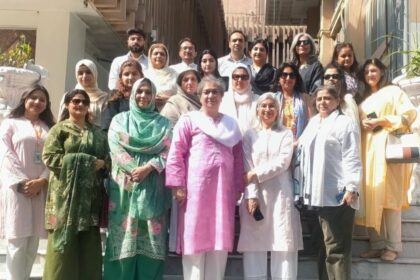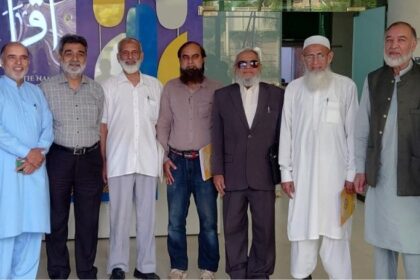The National Commission on the Status of Women, together with UNFPA and the Legal Aid Society, held a high-level consultation to tackle child marriage in Pakistan, calling for a uniform minimum marriage age nationwide and a series of concrete reforms to improve prevention, registration and survivor support. Participants urged stronger government ownership, better coordination with civil society, and targeted measures such as more female police officers, digitized nikkah registration and expanded community awareness.
Opening the session, NCSW Chairperson Ume Laila Azhar emphasized the urgency of standardizing the legal minimum age of marriage across all provinces. She noted that, despite Sindh’s pioneering law, implementation gaps remain and require coordinated action to ensure consistent protection for girls throughout the country.
Law enforcement and training needs were a central focus of the discussion. Representatives recommended increasing the number of female station house officers and providing specialized training for police handling child marriage cases, an initiative highlighted by officials involved in DIG-level training in Sindh.
Participants also called for reforms to nikkah registration to prevent unlawful marriages. Proposals included digitizing registration processes and making CNIC verification mandatory to improve record-keeping, accountability and the ability to detect and prevent underage unions.
Speakers urged strengthening the Sindh Child Protection Authority by boosting its resources and awareness-building efforts so it can play a more effective role in prevention and response. UNFPA underscored the need for sustained government ownership to ensure that reforms are implemented and produce measurable improvements for children and survivors.
Sindh Minister for Women’s Development Shaheena Sher Ali reaffirmed the provincial government’s commitment, saying they have personally taken on cases of child marriage, abuse and abduction and understand the challenges survivors face. Her remarks reinforced the session’s emphasis on both frontline response and preventive measures.
The consultation closed with a joint call to action: fully implement the Child Marriage Restraint Act, scale up community-level awareness campaigns, engage religious leaders in prevention efforts, and ensure coordinated government and civil society responses. Participants stressed that protecting girls’ rights and securing a safer future requires immediate, sustained and collaborative effort.











